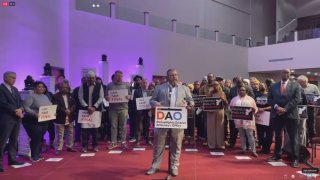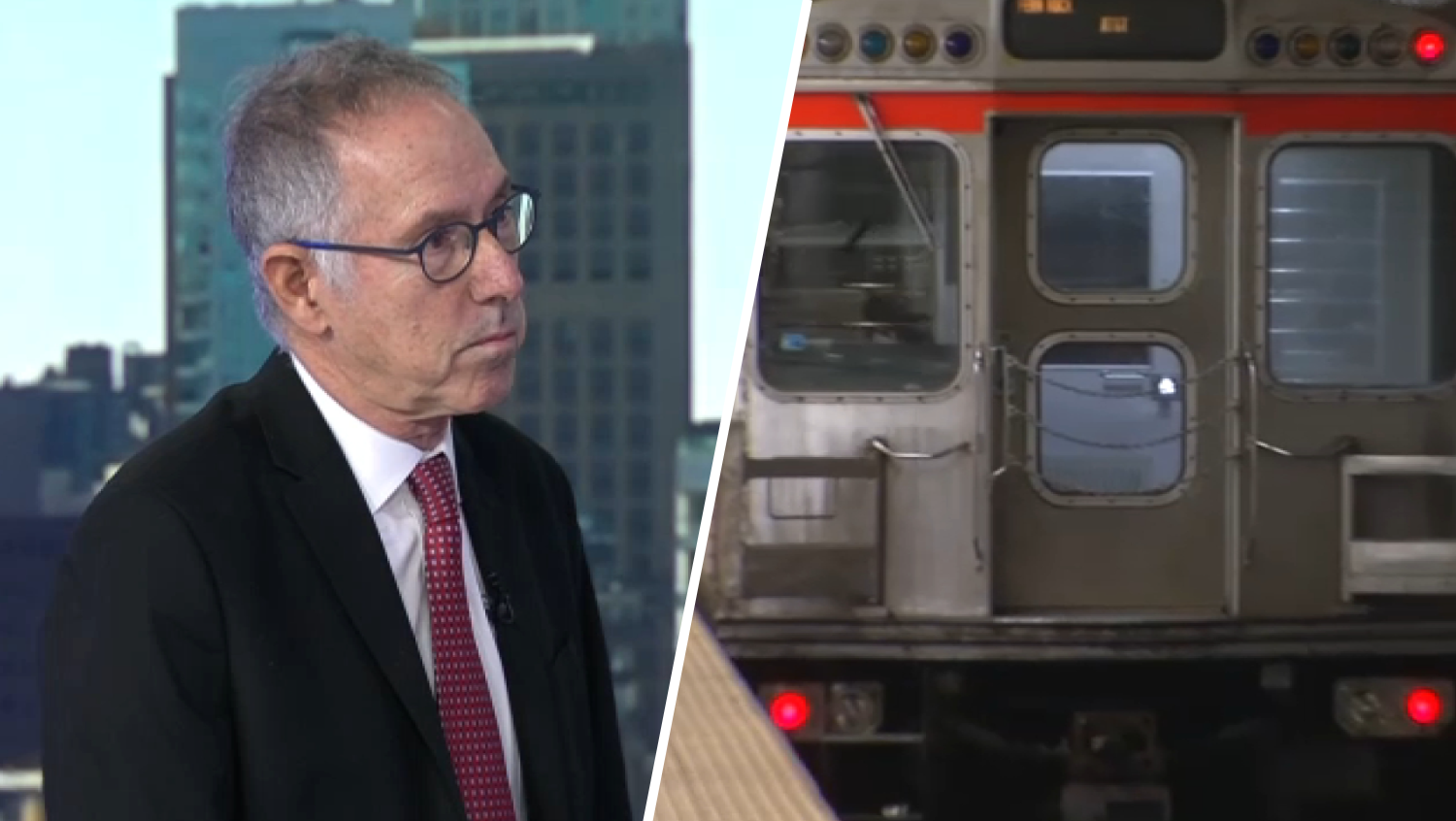
A newly passed Pennsylvania state law could, effectively, remove Philadelphia District Attorney Larry Krasner's ability to prosecute crimes throughout a majority of the city.
The legislation, sponsored by Republican state senator Wayne Langerholc, who represents the state's 35th state senatorial district, allows the state's attorney general to appoint a special prosecutor on any crime that occurs on -- and, according to the Krasner's office, within 500-yards of -- any SEPTA property in Philadelphia.
However, once outside of Philadelphia, this special prosecutor would have no authority over crimes committed on or around SEPTA properties.
In a statement on the legislation, Langerholc called it a way to "restore law and order" after, what he called, Krasner's "sweeping inaction" on crime.
Get top local stories in Philly delivered to you every morning. >Sign up for NBC Philadelphia's News Headlines newsletter.
“This dereliction of duty has cast a negative light on the City of Philadelphia and the commonwealth, which has significantly impacted safety and ridership,” Langerholc said in a statement. “The working families, students and visitors of Philadelphia are in dire need of prosecutorial solutions, and my legislation will help restore law and order on SEPTA’s buses, trolleys, trains and stations.”
Act 40 also allows this special prosecutor to intervene in all such cases through 2026 -- which is about when Krasner's current term would end.
It became law after being signed by Governor Josh Shapiro last Thursday.
Politics
The legislation itself never mentions exact boundaries of the special prosecutor's jurisdiction -- and never specifically mentions SEPTA, either.
Instead, it gives the not as yet appointed special prosecutor the ability to "investigate and institute criminal proceedings for a violation of the laws of this Commonwealth occurring within a public transportation authority that serves as the primary provider of public passenger transportation in the county of the first class."
Philadelphia, it should be noted, is Pennsylvania's only county of the first class.
In a statement, Krasner's office said the legislation "strips the twice-elected District Attorney in the largest and most racially diverse county in Pennsylvania of prosecutorial authority over crimes within 500 yards of SEPTA property – effectively covering the entire county."
On Monday, Krasner joined with representatives from a number of community groups, to decry the new legislation, with most of those in attendance calling the new law unconstitutional.
"This feels like something that was done for us, without us," Rev. Chris Kimmenez, of Healing Communities PA said on Monday.
Kimmenez said that the law would override voters' ability to elect a prosecutor by allowing the state to appoint someone to have authority over such a large percentage of Philadelphia.
And, he argued, the bill progressed through Harrisburg without input from Philadelphia community leaders like himself.
"It was totally done in Harrisburg, in the dark, without our knowledge. This isn't even about Larry… this is an attack on Philadelphia home rule," said Kimmenez. "This is an opportunity for the state to come in and in some way, erode home rule. This is an attack on democracy."
Kimmenez, like many who spoke Monday, noted that Langerholc represents a district located some 200 miles away from Philadelphia in an area that is not served by SEPTA.
"You're not going to create two district attorneys' offices for us to pay for," argued Kimmenez. "We decided that this is who we wanted as our DA...and that decision should be final."
Councilwoman at-large Kendra Brooks called the new law an attempt to disenfranchise the people of Philadelphia.
"As a city councilmember here in the City of Philadelphia, the constant attack on Philadelphia's democracy is disgusting," she said.
She insisted that, as an elected official, she felt it was important to push back against this new legislation -- and not just to support Krasner -- because the law would erode the voters' rights to choose their elected officials.
"I'm here to stand tall to protect our democracy," she said. "It's our responsibility to make sure that our constituents know that we will protect their vote at all costs."
Dan Bauder, president of the Philadelphia Council AFL-CIO, called to law "deeply offensive" to Philadelphians, as it was created by legislators who "do not represent anyone in Philadelphia."
"I cannot tell you how angry I am that we have to do this again and again," he said, noting that something similar has been tried before with the state's school reform commission.
"It has nothing to do with anything other than their belief that we don't deserve to govern ourselves and that is unconstitutional and immoral and I won't stand for it," Bauder said.
The new law gives Pennsylvania Attorney General Michelle Henry 30 days from its enactment to appoint a special prosecutor that would overrule Krasner's authority in many cases.
Krasner's office said Henry could also determine if this law in unconstitutional before then.
On Monday afternoon, Philadelphia City Councilmembers Kenyatta Johnson (D-2nd dist.) and Jamie Gauthier (D-3rd dist.) shared a joint statement calling for Henry to do just that.
"Act 40 sets a dangerous, undemocratic precedent and undermines Philadelphia’s home rule powers and disenfranchises Philadelphia’s voters. Philadelphia does not need a special prosecutor for crimes on SEPTA property. The District Attorney’s Office should continue their current responsibilities and be the lead agency to investigate and prosecute crimes in Philadelphia without outside interference," the councilmembers' statement read.
Contacted Monday, representatives for the Pennsylvania Attorney General's Office said that they are currently "in the process of reviewing this newly passed legislation in order to fully understand the parameters of the jurisdictional complexities, what the office’s responsibilities will be under the law, and how the funding will occur."
The office of Governor Josh Shapiro did not immediately respond to a request for comment on this recently passed legislation.
Sign up for our Breaking newsletter to get the most urgent news stories in your inbox.



